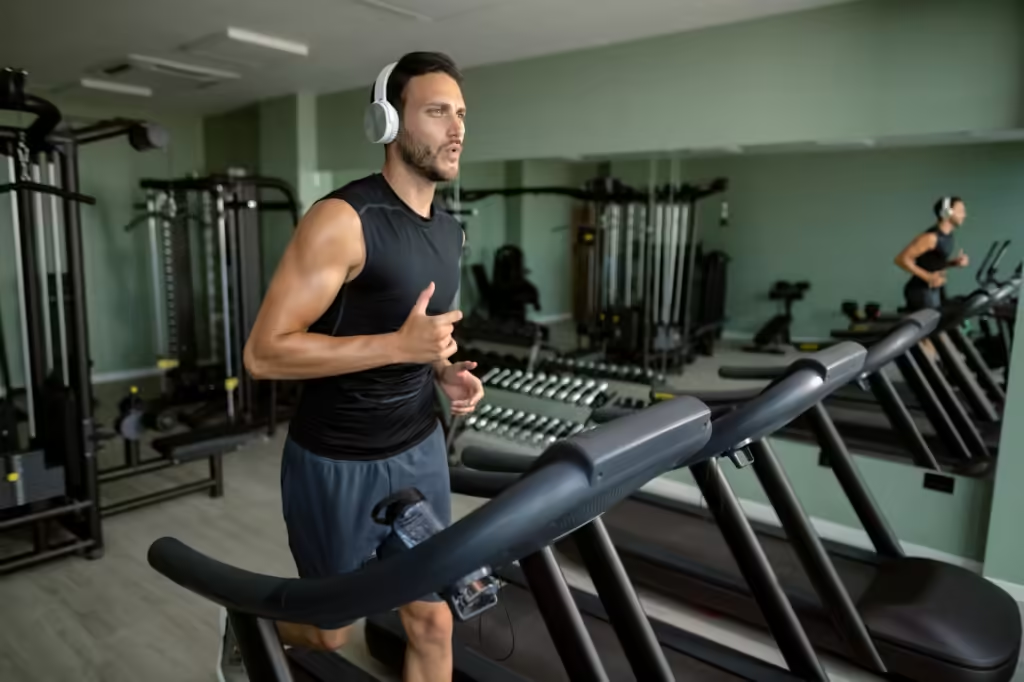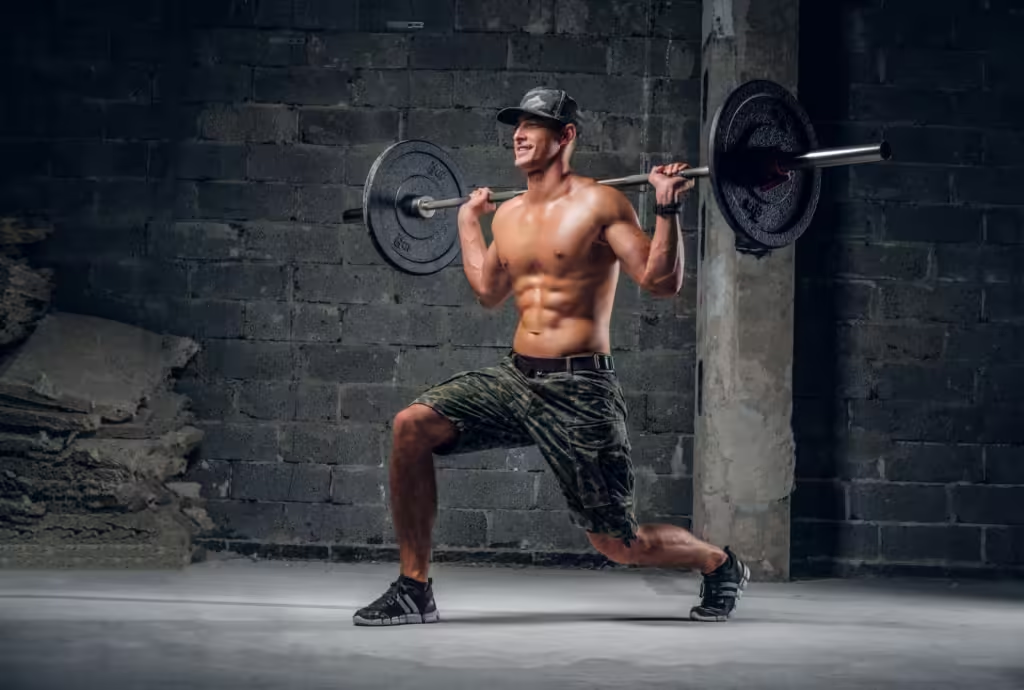1. Introduction
1.1 Importance of Gym Workouts
Gym workouts have become a fundamental part of a healthy lifestyle. With increasing awareness of the benefits of physical activity, more people are turning to gyms to achieve their fitness goals. Whether it’s weight loss, muscle gain, or overall health improvement, gym workouts provide a structured environment where individuals can focus on their personal fitness journey.
1.2 Overview of the Article Content
In this article, I will explore the various aspects of gym workouts, including the benefits, types, and how to create a personalized routine. I will also cover important topics such as nutrition, gym etiquette, and expert insights to help you maximize your time at the gym.
2. Benefits of Regular Gym Workouts
2.1 Physical Health Benefits
Regular gym workouts contribute significantly to physical health. They help in building muscle strength, improving cardiovascular health, and enhancing flexibility. Weight management becomes easier with consistent exercise, and it also reduces the risk of chronic diseases like diabetes and heart disease.
2.2 Mental Health Benefits
Physical exercise is not only beneficial for the body but also for the mind. Regular gym workouts can reduce stress, anxiety, and depression. The release of endorphins during exercise helps improve mood and overall mental well-being.
2.3 Social and Emotional Benefits
Gym workouts often provide a social environment where you can connect with others who share similar fitness goals. This sense of community can boost your emotional health and help you stay motivated.
3. Types of Gym Workouts
3.1 Strength Training
Strength training focuses on building muscle mass and strength. It involves exercises like weight lifting, resistance band workouts, and bodyweight exercises. Strength training is essential for maintaining bone density and overall body composition.

3.2 Cardiovascular Workouts
Cardiovascular exercises, or cardio, are essential for heart health. These include activities like running, cycling, and rowing. Cardio workouts help burn calories, improve endurance, and boost cardiovascular health.
3.3 Flexibility and Mobility Exercises
Flexibility and mobility exercises, such as yoga and stretching, are important for maintaining a full range of motion in your joints. These exercises reduce the risk of injury and improve overall performance in other workouts.
3.4 High-Intensity Interval Training (HIIT)
HIIT is a popular workout method that involves short bursts of intense exercise followed by rest periods. It is an efficient way to burn fat and improve cardiovascular health in a shorter amount of time.
4. Creating a Personalized Gym Routine
4.1 Assessing Fitness Goals
Understanding your fitness goals is the first step in creating a personalized gym routine. Whether you want to build muscle, lose weight, or improve endurance, having clear goals will guide your workout plan.
4.2 Understanding Fitness Levels
Knowing your current fitness level is crucial for selecting the right exercises. Beginners should start with basic movements and gradually increase intensity, while experienced gym-goers can focus on more advanced techniques.
4.3 Choosing the Right Exercises
Selecting exercises that align with your goals and fitness level is essential. A well-rounded routine should include strength, cardio, and flexibility exercises to ensure balanced development.
4.4 Balancing Different Types of Workouts

Creating a routine that balances strength training, cardio, and flexibility will help you achieve a well-rounded fitness level. Ensure that you give equal importance to all aspects of fitness to avoid overtraining in one area.
5. Proper Warm-Up and Cool-Down Techniques
5.1 Importance of Warming Up
Warming up prepares your body for the workout by gradually increasing your heart rate and loosening your muscles. It helps prevent injuries and improves performance.
5.2 Effective Warm-Up Exercises
Effective warm-up exercises include light cardio, dynamic stretches, and mobility drills. These activities prepare your muscles and joints for the more intense movements of your workout.
5.3 Importance of Cooling Down
Cooling down is just as important as warming up. It helps your body return to a normal state by gradually lowering your heart rate and preventing blood pooling in the legs.
5.4 Effective Cool-Down Exercises
Cool-down exercises include light cardio, static stretching, and deep breathing exercises. These activities promote muscle recovery and reduce post-workout soreness.
6. Common Mistakes to Avoid in the Gym
6.1 Overtraining
Overtraining can lead to burnout and injury. It’s essential to give your body enough rest and recovery time between workouts to avoid these negative effects.
6.2 Incorrect Form
Using improper form during exercises can lead to injuries and reduce the effectiveness of your workouts. It’s important to learn the correct techniques and practice them consistently.
6.3 Neglecting Recovery
Recovery is a crucial part of any fitness routine. Neglecting recovery can lead to overuse injuries and hinder progress. Incorporating rest days and active recovery techniques is essential.
7. Nutrition and Hydration for Gym Goers
7.1 Pre-Workout Nutrition
Eating the right foods before a workout can boost your energy levels and improve performance. Focus on consuming a balanced meal with carbohydrates, protein, and healthy fats.
7.2 Post-Workout Nutrition
Post-workout nutrition is essential for muscle recovery and replenishing energy stores. Consuming protein and carbohydrates within 30 minutes of your workout is recommended.
7.3 Hydration Tips
Staying hydrated before, during, and after your workout is crucial. Water is essential for maintaining energy levels, regulating body temperature, and aiding in recovery.
8. Gym Etiquette
8.1 Respecting Equipment and Space
Respecting the equipment and space in the gym is essential for creating a positive environment. Always return weights to their proper place and avoid hogging machines.
8.2 Cleaning Up After Yourself
Wiping down equipment after use and picking up after yourself is basic gym etiquette. This ensures a clean and hygienic space for everyone.
8.3 Being Considerate to Others
Being mindful of others in the gym, such as not being too loud or monopolizing equipment, contributes to a respectful and supportive
environment.
9. Tracking Progress
9.1 Importance of Tracking
Tracking your progress helps you stay motivated and see how far you’ve come. It allows you to adjust your routine as needed to continue making progress.
9.2 Tools for Tracking Workouts
Using tools like fitness apps, journals, or wearable devices can help you track your workouts, monitor your progress, and set new goals.
9.3 Setting Achievable Milestones
Setting small, achievable milestones keeps you focused and motivated. Celebrate these wins to stay inspired and committed to your fitness journey.
10. Staying Motivated
10.1 Setting Realistic Goals
Setting realistic and achievable goals is key to staying motivated. Unrealistic goals can lead to frustration and burnout, while achievable ones keep you on track.
10.2 Overcoming Plateaus
Hitting a plateau can be frustrating, but it’s a normal part of the fitness journey. Varying your workouts and staying consistent can help you overcome these obstacles.
10.3 Celebrating Small Wins
Celebrating small achievements along the way keeps you motivated and reinforces your progress. Whether it’s lifting a heavier weight or running a longer distance, every win counts.

11. Gym Workouts for Beginners
11.1 Getting Started
Starting a gym routine can be intimidating, but with the right guidance, beginners can ease into workouts and build confidence over time.
11.2 Beginner-Friendly Workouts
Focus on simple exercises that target major muscle groups. Start with bodyweight exercises and gradually introduce weights as you become more comfortable.
11.3 Avoiding Common Beginner Mistakes
Common beginner mistakes include overtraining, neglecting form, and not incorporating rest days. Avoid these pitfalls by following a well-structured routine and seeking guidance when needed.
12. Advanced Gym Workouts
12.1 Techniques for Experienced Gym Goers
For those with more experience, incorporating advanced techniques like supersets, drop sets, and progressive overload can help push past plateaus and continue making gains.
12.2 Advanced Training Programs
Advanced training programs like powerlifting, bodybuilding, and endurance training require specialized routines that focus on specific goals.
12.3 Pushing Past Limits
Pushing past your limits requires mental and physical resilience. Stay focused, listen to your body, and gradually increase intensity to achieve new levels of fitness.
13. Expert Insights and Tips
13.1 Tips from Fitness Professionals
Fitness professionals offer valuable insights into optimizing your workouts, staying motivated, and avoiding common mistakes. Their expertise can help you reach your goals more efficiently.
13.2 Case Studies of Success Stories
Learning from the success stories of others can provide inspiration and practical advice. Real-life examples show that with dedication and the right approach, significant transformations are possible.
14. Future Trends in Gym Workouts
14.1 Technology and Fitness
The integration of technology in fitness is revolutionizing the way we work out. From wearable devices to virtual reality workouts, staying ahead of the curve can enhance your gym experience.
14.2 Emerging Workout Trends
New workout trends, such as functional training and hybrid fitness classes, are gaining popularity. These trends offer fresh and exciting ways to stay fit and engaged.
15. Conclusion
15.1 Summary of Key Points
Gym workouts are an essential part of a healthy lifestyle, offering physical, mental, and social benefits. By understanding the different types of workouts and creating a personalized routine, you can achieve your fitness goals effectively.
15.2 Encouragement for Continued Fitness
Consistency is key to success in fitness. Stay motivated, keep learning, and continue pushing yourself to new heights in your gym journey. The rewards of a healthy and active lifestyle are worth the effort!

